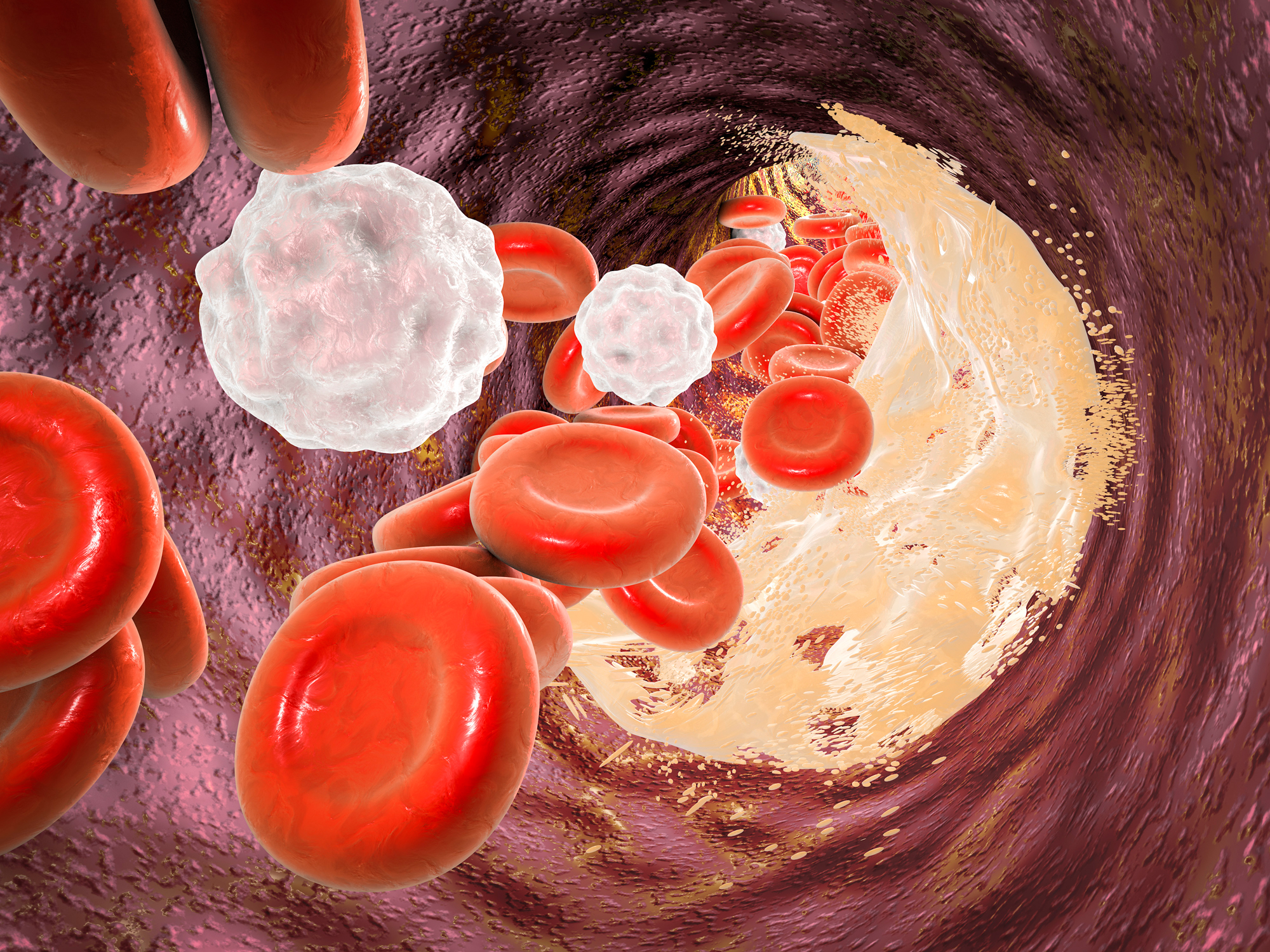Get Easy Health Digest™ in your inbox and don’t miss a thing when you subscribe today. Plus, get the free bonus report, Mother Nature’s Tips, Tricks and Remedies for Cholesterol, Blood Pressure & Blood Sugar as my way of saying welcome to the community!
Are greasy, bacterial bugs clogging your arteries?

Bacteria is the biggest buzzword in the health field today, and for good reason. More and more research shows it can either make or break your health…
Good bacteria can protect you from autoimmune disorders, anxiety, depression, allergies, obesity and more.
On the flip side, bad bacteria can do you in… whether through pneumonia, cancer, heart disease or a host of other conditions.
This connection between bacteria and your health is pretty well established. But when it comes to bacteria’s role in heart disease there’s been an unexpected twist…
You may have heard that bad bacteria from your mouth can make its way to your heart and increase your risk of heart disease. But researchers recently figured out exactly how and why bacteria causes this deadly disease.
And what they discovered will turn everything you thought you knew about fat, cholesterol and heart health on its head…
Bacteria, fat and your heart
When it comes to heart disease, scientists know one thing for sure…
Fatty clogs in your arteries contribute to heart disease. More specifically, fatty substances called lipids build up in your arteries and trigger a chain reaction that causes them to become thick, hard and inflamed — a process known as atherosclerosis.
For quite a while, scientists thought that these fatty clogs came from eating high- cholesterol, fatty foods. That’s where the whole low-fat, cholesterol-free craze came from. But now we know better. There’s no connection between eating fatty foods like eggs, butter, fatty fish, and meat and the development of heart disease.
It turns out, these fatty clogs are coming from a much less obvious place — bacteria.
Researchers from the University of Connecticut collected atheromas (fatty growths) from the hearts of people with heart disease and analyzed them. And guess what they found out?
These growths are made from fats that came from a specific family of bacteria — Bacteroidetes.
“I always call them greasy bugs because they make so much lipid. They are constantly shedding tiny blebs of lipids. Looks like bunches of grapes,” said Frank Nichols, a UConn Health periodontist who studies the link between gum disease and atherosclerosis.
Nichols and other UConn researchers say that Bacteroidetes bacteria negatively affect your heart’s blood vessels in two different ways. First, your immune system sees them as a bacterial invasion and attacks, leading to inflammation. Then, they get broken down by enzymes, which encourages the production of even more inflammation-causing molecules.
So just like so many other diseases, bad bacteria could be the culprit causing your unhealthy heart!
Taking advantage of the mouth-heart connection
Researchers believe this study may explain why gum disease is tied to heart disease. Bacteroidetes bacteria are, after all, found in the mouth.
So does that mean your best bet for preventing heart disease is preventing gum disease?
It definitely doesn’t hurt. A 2014 study found that people with heart disease who had their gum disease treated lowered their healthcare costs by 20 to 40 percent. That means, their heart health likely improved just from giving some attention to their teeth.
So take good care of your teeth. Brush at least twice per day. Visit your dentist regularly, and watch out for signs of gum disease:
- Gums that are swollen, red or tender
- Gums that bleed easily
- Pus near your teeth or gums
- Teeth that feel loose
- Brown deposits on your gum line
- Bad breath
If you want to go above and beyond for your oral health, you can also try oil pulling and these top four supplements for supporting healthy teeth and gums.
Editor’s note: While you’re doing all the right things to protect your brain as you age, make sure you don’t make the mistake 38 million Americans do every day — by taking a drug that robs them of an essential brain nutrient! Click here to discover the truth about the Cholesterol Super-Brain!
Sources:
- Bacterial Fats, not dietary ones, may deserve the blame for heart disease — MedicalXpress. Retrieved November 3, 2017.
- Nemati, et al. “Deposition and hydrolysis of serine dipeptide lipids of Bacteroidetes bacteria in human arteries: relationship to atherosclerosis.” — Journal of Lipid Research, 2017.
- Treating gum disease may lessen the burden of heart disease, diabetes, other conditions — Harvard Health Publishing. Retrieved November 3, 2017.













